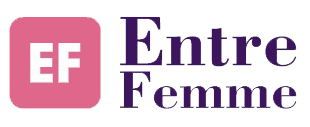Global Voices, Local Impact: How Podcasts Amplify Feminist Messages
In a world where vital conversations often get lost in the noise, a powerful shift is taking place. From bedrooms to professional studios, podcasts are becoming the ultimate megaphone, allowing feminist voices to transcend geographical boundaries and resonate with listeners everywhere.
- Ornella Jameson
- Jun 15, 2025
- 0 Comments
- 2740 Views
This isn't just about sharing ideas; it's about creating "Global Voices" that spark "Local Impact," fostering understanding, igniting action, and building communities, one listen at a time. Let's explore how audio is becoming a driving force for feminist change.
Podcasting as Democratic Media
Unlike legacy media that often marginalize or tokenize feminist voices, podcasting provides decentralized, on-demand content creation. Anyone with a microphone and internet access can publish, making the medium radically accessible. This accessibility is critical for feminist discourse, allowing voices from underrepresented regions, particularly in the Global South, to speak without editorial gatekeeping.
Feminist podcasters have harnessed this space to unpack topics ranging from reproductive justice and sexual agency to labor rights and climate feminism. Importantly, podcasting offers the space for nuance. Unlike viral posts or short videos, podcasts allow extended, in-depth dialogue, crucial for unpacking complex gendered issues.
Global Reach, Local Resonance
Feminist podcasts transcend borders. A listener in Nairobi can tune into a conversation about bodily autonomy in Buenos Aires. This transnational reach strengthens solidarity, builds digital communities, and makes local struggles visible to global audiences. Yet the best feminist podcasts don’t erase cultural specificity: they amplify it.
Podcast creators often include language, sound design, and content that reflect local traditions, identities, and resistances. This localization ensures that global feminism isn’t monolithic but deeply rooted in the community context. Podcasts become not just storytelling tools but archives of resistance and resilience.
Intersectionality on Air
One of podcasting’s greatest feminist strengths is its capacity to center intersectionality. From queerness and disability to class and colonialism, feminist podcasters foreground layered identities and lived experiences. Shows focusing on queer Black feminism, for example, not only highlight the intersections of race, gender, and sexuality but also critique white, Western feminist frameworks that often dominate mainstream discourse.
By embracing intersectionality, these podcasts challenge listeners to rethink feminism not as a singular movement but as a tapestry of interconnected struggles. They ask hard questions about who gets to speak, who is heard, and whose liberation is prioritized.
Creating Safe Listening Spaces
Podcasting also offers a unique form of intimacy. Listeners often engage alone, walking, cooking, or commuting, making it feel like a personal conversation. For feminist content, this privacy can be transformative. It allows people in hostile or patriarchal environments to access radical ideas without fear. In contexts where women’s speech is censored or dangerous, podcasts offer an anonymous portal to validation, knowledge, and empowerment.
Furthermore, many feminist podcasters curate not just content but community. Through social media, live events, and listener participation, they foster safe, affirming digital ecosystems where listeners can share stories, ask questions, and build solidarity.
Economies of Voice: Sustainability and Labor
Despite its radical potential, feminist podcasting isn’t immune to challenges. Monetization remains difficult, especially for creators outside major media hubs. The labor of producing podcasts, scripting, editing, and promoting is often unpaid or underpaid, mirroring broader patterns of gendered labor exploitation.
Still, many podcasters innovate around these barriers: through crowdfunding, community-supported platforms, and strategic collaborations. Their persistence reflects a more profound truth: feminist podcasting isn’t just about voice and building sustainable, alternative media economies.
Podcasting is not a trend: it’s a tool of transformation. Feminist podcasters across the globe are rewriting what it means to speak, listen, and connect. They document struggles, archive victories, and invite listeners into a more inclusive, intersectional future. As the digital landscape evolves, the power of feminist voices on air will only grow louder, bolder, and more global.

 | Unlock Success with Our Guide
| Unlock Success with Our Guide



0 Comments